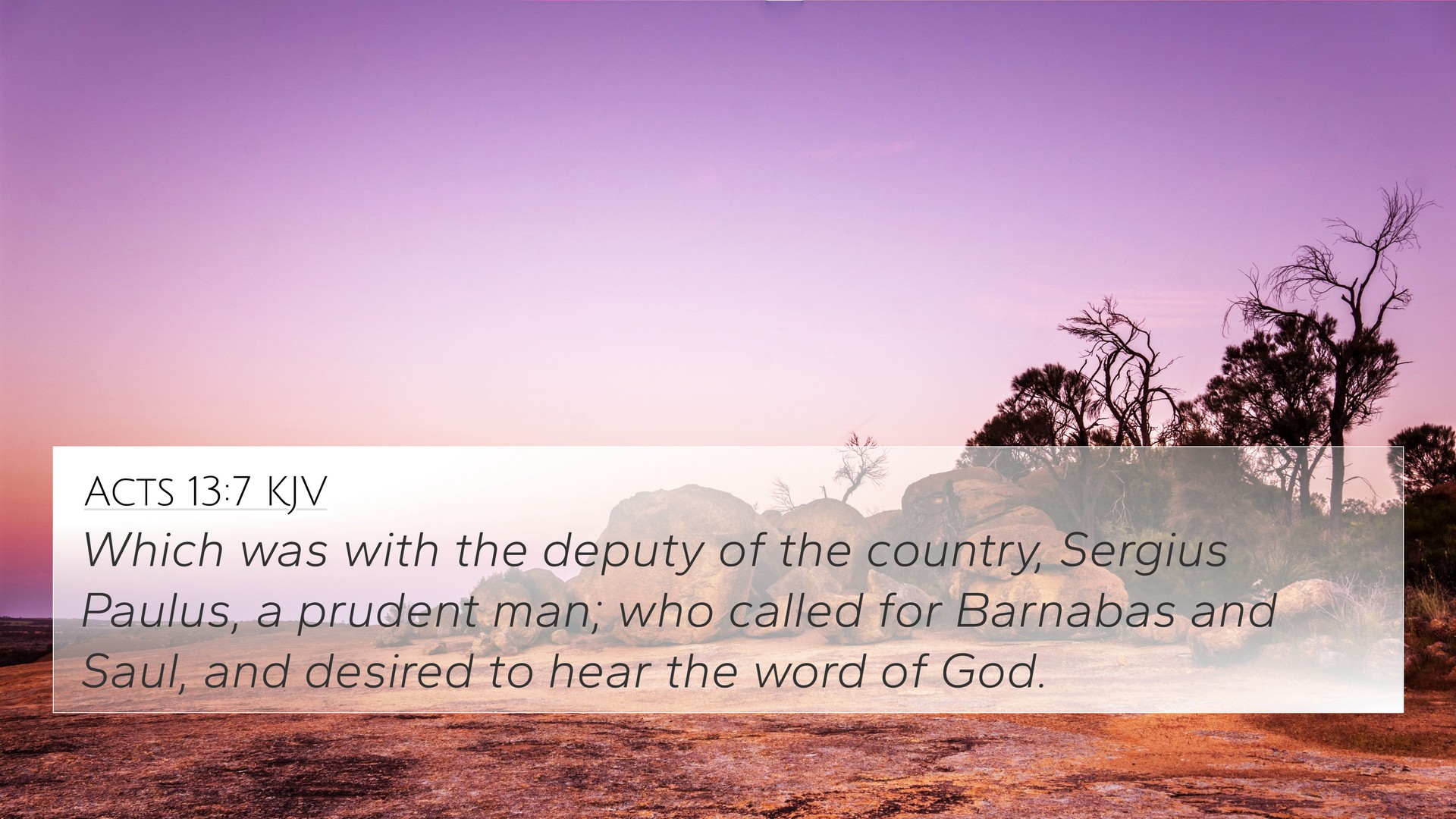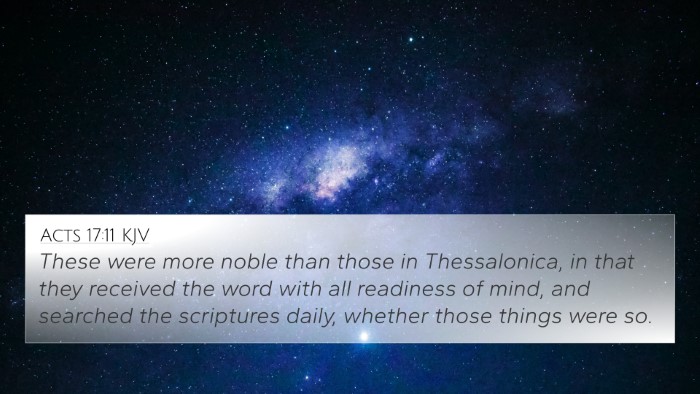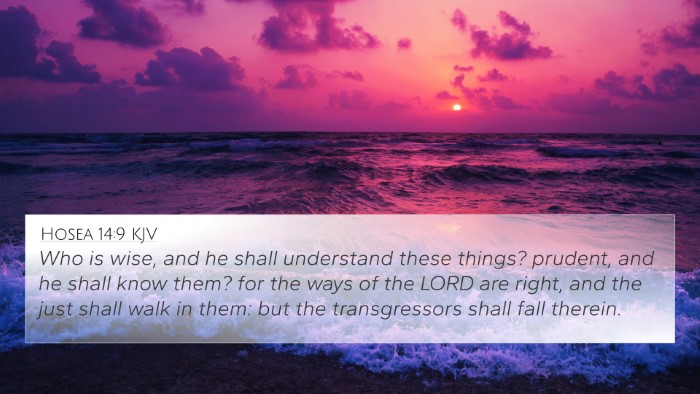Understanding Acts 13:7
Acts 13:7 states:
"Which was with the deputy of the country, Sergius Paulus, a prudent man; who called for Barnabas and Saul, and desired to hear the word of God."
This passage highlights the interaction between the Apostle Paul (formerly Saul) and Sergius Paulus, a Roman proconsul. It marks a significant point in the missionary efforts of Paul and Barnabas as they spread the Gospel to the Gentiles.
Commentary Insights
- Matthew Henry:
Henry emphasizes the importance of seeking the Word of God, noting that Sergius Paulus, despite his high position, is portrayed as a wise and discerning individual. He actively seeks the teachings of Barnabas and Saul, which illustrates a key aspect of effective witness—the desire of many to hear the truth.
- Albert Barnes:
Barnes draws attention to the designation of Sergius Paulus as a "prudent man," which implies he was not only wise but also rational and judicious in his decisions. His request to hear the Word of God underlines an openness to spiritual matters that transcends his political authority.
- Adam Clarke:
Clarke offers a broader contextual view regarding the Roman governance and how it influenced early Christianity. He states that the interaction with a Roman official symbolizes the eventual acceptance of the Gospel by the Gentiles, positioning this event as pivotal for the Church's expansion.
Thematic Connections
Acts 13:7 serves as a bridge to various themes within scripture:
- Gospel Invitation: This verse invites readers to consider the nature of the Gospel being available to all, including those in power, challenging societal boundaries.
- Wisdom and Understanding: The portrayal of Sergius Paulus as a prudent man speaks to the qualities of wisdom and discernment in recognizing the need for spiritual input.
- Faith Among Gentiles: This pivotal encounter underscores the beginning of the Gentile mission, suggesting the universality of Christ's message.
Cross-References
Several Bible cross-references enrich the understanding of Acts 13:7:
- Matthew 5:14-16: Discusses being a light to the Gentiles.
- John 10:16: Jesus speaks of other sheep, emphasizing the inclusion of Gentiles.
- Acts 10:34-35: Peter acknowledges that God shows no favoritism but accepts those who fear Him from every nation.
- Romans 1:16: Paul articulates that the Gospel is for everyone, both Jew and Gentile alike.
- Galatians 3:28: Notes the equality of all believers in Christ, intensifying the inclusive spirit of the Gospel.
- Titus 3:4-7: Reaffirms that God’s grace extends to all people, regardless of their previous state.
- Colossians 1:6: Speaks of the spread of the Gospel worldwide, echoing the missionary efforts present in Acts.
- Ephesians 2:19: Discusses Gentiles being fellow citizens in God’s kingdom, paralleling the acceptance of Sergius Paulus.
- Philippians 1:5: Reminds believers of their partnership in the Gospel, which encompasses all layers of society.
- 1 Timothy 2:4: Highlights God's will for all to be saved and come to the knowledge of the truth.
Concluding Thoughts
The interaction between Barnabas, Saul, and Sergius Paulus in Acts 13:7 reveals essential insights about spiritual hunger, the openness of the Gentiles to the message of Christ, and the importance of human wisdom in the quest for divine truth. As we explore this verse, we witness the foundational moments that shaped the early Church and established the pattern for future missionary endeavors. The implication for believers today is to seek and share the Gospel widely, transcending barriers and speaking into the lives of those who are perceptive and ready to listen.













